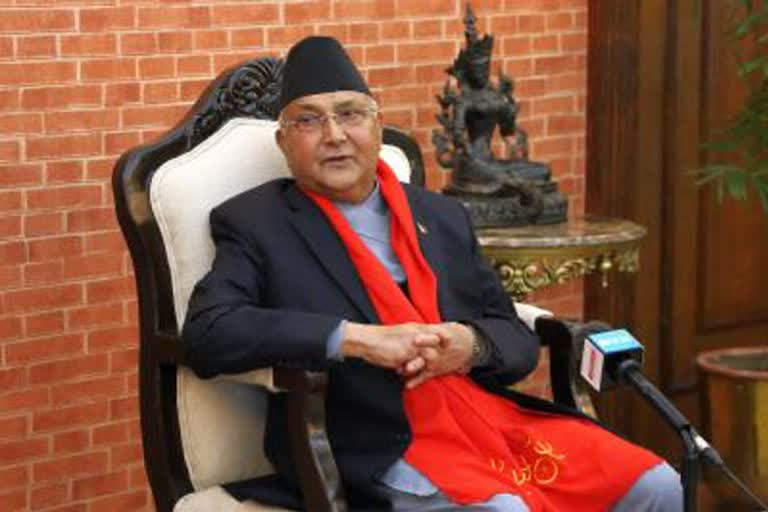Kathmandu: It looks like time is favouring Nepal’s beleaguered Prime Minister KP Oli yet again. With the Supreme Court on Sunday quashing the unity of NCP (Nepal Communist Party) that brought Oli-led CPN and Prachanda-led Maoist-Centre together ahead of 2018 elections, Oli is finding himself less-troubled. He looks happier. Reason? He thinks he leads the ‘legitimate faction’ of the UML, while Madhav Nepal is back in UML again to lead the disgruntled faction.
Nepal’s ruling party remains charred and tattered. Breaking a new anti-Oli alliance, Prachanda is back in his old party—Maoist Centre. Madhav Nepal said goodbye to his new ally, Prachanda, on Tuesday after the Supreme Court resurrected UML and Maoist-Centre. It was Oli who came up with the idea of NCP unification just before 2017 generation elections.
And that worked wonders as the party emerged largest and strongest. Even as a nervous Delhi looked on, a buoyant China looked contented to see a unified communist party finally seeing the light of the day south of the Himalayas.
The new anti-Oli CPN equation developed recently after Oli dissolved the House of Representatives nearly three months ago. The move, sudden and unexpected for many, agitated his own party comrades including Prachanda and Nepal. But that trouble appeared fixed on 23 February when the Supreme Court reinstated the dissolved House, setting a new precedent--and issuing a warning for future prime ministers, who, just like Oli, might be tempted to dissolve the House at the slighted trouble.
Read: China, Russia agree to build lunar research station
Things changed yet again this week. By rejecting the NCP unity, the Supreme Court’s Sunday’s order took the politics back to 2017 elections days when UML and Maoist-Centre remained two different political forces. The Court’s ruling meant everyone including Oli, Nepal, Prachanda and others, must forget recent troubles and fix their issues. The order also meant that the communists must stick to their old parties to protect their parliamentary seats and numbers as a no-trust vote against Oli looms large.
The Supreme Court’s order has thrown NCP into the confines of history. Now UML is the largest party in the lower house of Parliament, the House of Representatives, with 121 seats; Nepali Congress is the second largest with 63 seats, Maoist-Centre is the third largest with 53 seats; Baburam Bhattarai-led Janata Samajwadi Party (JSP) is the fourth largest with 34 seats; while three other smaller parties and an independent candidate command one seat each in the 275 member House.
Read: Protesters adapt tactics after Myanmar police use violence
With a no-confidence vote lurking in the horizon, Oli, Nepal and Prachanda have intensified exercises to consolidate their intraparty strength and find a suitable coalition partner. Things appear moving at a fast-forward pace in Nepali politics right now, yet no one can tell just yet who will emerge the winner.
The big question is this: Are Oli’s tough times over now? Is his government which is all set to face a no-confidence motion from his own comrades safe now? One thing is for sure -- Oli sounds more confident and finds himself more powerful now than in recent weeks when his administration struggled to quell heated protests from his ex-comrades, including Prachanda and Madhab Nepal, who demanded Oli’s resignation.
Read: Range of global issues to be discussed at QUAD summit: WH



